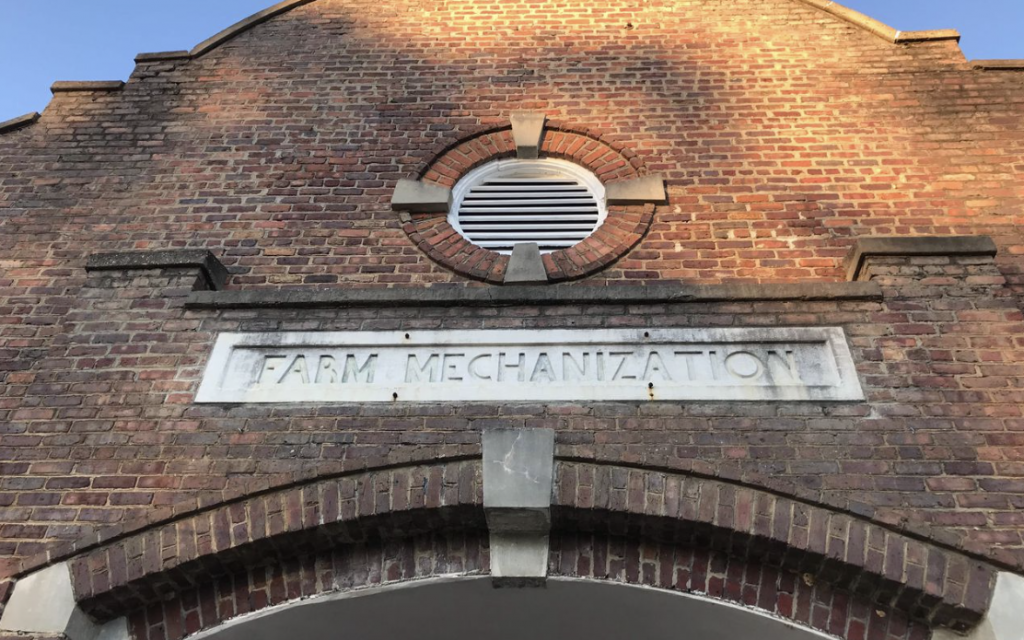By Sarah Whites-Koditschek, The Associated Press
Conner Bailey studies the Southern tradition among African Americans of passing down land without a will.
“Land owners are a buttress for stability within communities, particularly black communities,” said Bailey, a professor of rural sociology at Auburn University who focuses on what is known as heir’s property.
When property is passed down between family members without a will, ownership becomes unclear. In Alabama, this is a key factor in persistent poverty, inequality and underdevelopment in the Black Belt, Bailey says.
“I think the threat to black-owned land is one of the biggest social issues of our time,” said Monica Rainge, director of land retention with the Federation for Southern Cooperatives.
The federation estimates that 60 percent of black-owned land in the United States is heir’s property. And black land loss has accelerated. In 1910, blacks owned 15 million acres in the United States. Today that figure is down to less than three million acres.
The reasons for the tradition are complex. Historically, many black landowners did not write wills due to a distrust of lawyers, who were predominantly white, a lack of funds, and illiteracy. Collective ownership was seen as a way to protect land from exploitation by unscrupulous white lawyers. This has, in many ways, backfired.
When the title is unclear, it is difficult to borrow against the property or develop it. And a disagreement among heirs or a failure to pay delinquent taxes can lead to a forced sale, where descendants can lose land. In some cases, investors can purchase property only to sell it back to families with interest.
“Together,” said Rainge, “I say they own everything but nothing,”
Estate divided
Robert Zabawa has spent much of his career studying heir’s property as a Tuskegee University professor of agriculture and resource economics.
Zabawa spoke at an evening community meeting in Tuskegee earlier this month to explain heir’s property and encourage residents to write a will.
He described what happens to heir’s property through generations to a group of about 30 mostly African Americans
“Remember, if you do not decide how you want your estate divided, the state of Alabama will,” Zabawa told the crowd. “And how many of you want the state to do that for you?” he asked. “Not me.”

In 2014, Alabama passed a law to create new protections for property owners facing forced partition sales. Previously an outside party, like a developer, could purchase partial ownership from an heir and force a partition sale of the property, usually at far below market value.
Such sales have been more common in coastal states where blacks inherited valuable properties.
Under Alabama’s new law, owners must be given notice of the sale, an appraisal is required, and family members have first rights to purchase their land back.
Still, coming to such a group consensus can be difficult when families are large.
Over several generations, there can be as many as thousands of heirs to one parcel of land.
The Great Migration north caused distance and disinvestment. Many owners who live far away do not even realize they are heirs. In these circumstances, it is easy for families to fall behind on tax payments.
In Macon County alone, there are nearly $36 million dollars tied up in heir’s property, according to Zabawa.
The loss of property taxes from these properties, due to delinquency and underinvestment, impacts the entire community, he says.
Family disorganization and dispute becomes more likely when property titles are not clear. Still the emotional ties to the land remain for some.
Zabawa and a graduate student, Kara Woods, have visited family reunions to explain heir’s property to large families, some who meet each year on land once purchased by former slaves.
“People like to know where they came from,” he said. “They feel connected to a spot, even if they’re bad memories.”
Zabawa says some former slaves were able to acquire land during the Reconstruction era.
“It’s sort of a physical manifestation of a legacy of blood. And, you know, where the stories get told, and they’ll pass down the lies too,” he joked.
Some family members aren’t aware that there is heir’s property, said Woods. When they learn, their reaction is often pride.
“This is what your great-great-great grandfather was able to achieve in in a place that you know, was very hard,” she said, referring to the Jim Crow South.

“Do I have any rights?”
Inez Key attended the Tuskegee meeting to ask Zabawa about some family land she is trying to save.
Key recalls spending summers as a kid helping her family harvest potatoes, peanuts, pears and apples with her grandparents on the family farm. They built sweet potato banks with straw and boards, a traditional method of storage.
Most of her blood relatives are gone. She tried to buy the property from an in-law about a decade ago, but they weren’t interested.
She says she lived in a house on the land until there was an electrical fire.
Still, she has paid the property taxes on the property for ten years.
“Do I have any rights?” she asked.
“You might get a place closer to heaven,” said Zabawa “But on this earth?” he says the other heirs could chose to force a sale.
After Zabawa’s presentation, Tuskegee Mayor Lawrence “Tony” Haygood drew laughs from the crowd over a family story.
Before his dad passed away, he told Haygood of some “real good, virgin” timber they owned in Coffee Springs.” Haygood explained he loves timber.
“Viirrgin timber,” he said, mimicking his dad. “They ain’t been cut in years!” He said, “Them trees so tall. They big around.”
Haygood asked his father again and again to go see the timber, but they never went. Finally, he realized why. Someone had cut their trees and taken “plenty of dollars.” His dad, an easygoing person, didn’t want to make an issue of it.
“So all I could do is hang my head,” said Haygood, realizing the culprit was a member of his own extended family.
Basis of everything
Bailey, the sociology professor at Auburn, estimates there is $6.6 billion dollars worth of heir’s property in the black belt. He says other researchers have estimated the number higher, at $28 billion.
“You can’t use the money to get a loan to send your kid to college, to build a house (or) to start a business,” he said.
“You end up with a lot of land that’s being underutilized. People are unwilling to invest in it,” he said.
This year, U.S. Sen. Doug Jones, D-Ala., sponsored legislation to fund legal help for heir’s property owners. In 2018, he helped make heir’s property owners eligible for federal USDA farm loans for the first time.
Bailey says he would like to see federal legislation go futher to include housing loans.
But he says a solution also rests on individual families. They can choose to collectively sell a property or create an L.L.C. to keep it in the family. The first step is making a family tree to figure out what heirs exist.
Monica Rainge, at the Federation of Southern Cooperatives, says her group has had some success helping clear heir property titles.
Of the roughly 600 people the federation helps with title issues each year, about 40 percent are able to clear their titles.
“It does require a high degree of commitment both from the family and even financially to resolve these issues,” she said, referring to the costs of a lawyer for low-income people.
To Rainge, land ownership is the basis of everything for African Americans. Land is needed to start a business, to build wealth, and to employ others.
That’s why she calls heir’s property her life’s calling.
“This work is critical to what we have to do to secure our financial future for the next generation,” she said, “but also to build the kind of economically self-sufficient community that we want to be a part of.”











